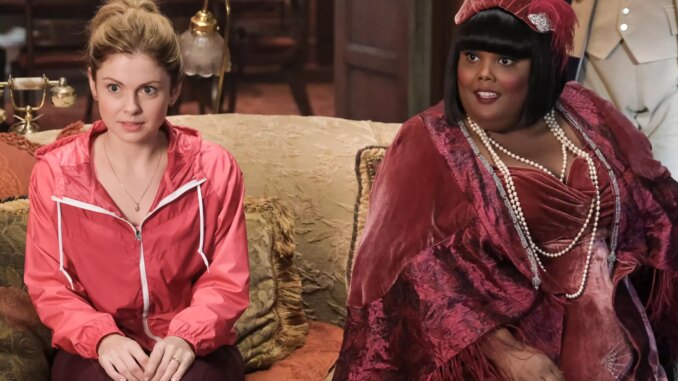
In the sprawling, slightly decrepit halls of Woodstone Manor, where history literally hangs in the air, the hit CBS comedy Ghosts brings to life a spectral ensemble unlike any other. Among them, a radiant beacon of jazz-age swagger and unapologetic confidence stands out: Alberta Haynes. Yet, Alberta isn't merely a character on a page; she is a vibrant, living (or rather, un-living) testament to the power of performance, meticulously brought to pulsating existence by the extraordinary Danielle Pinnock. Pinnock’s portrayal of Alberta transcends mere acting; it becomes a profound mission for representation, breathing life into a past often overlooked and asserting the vital presence of Black, plus-sized womanhood on mainstream television.
Alberta Haynes, a Prohibition-era chanteuse, poisoned for her indiscreet success, arrives on screen as the epitome of Roaring Twenties glamour and grit. She is sassy, opinionated, deeply proud of her legacy, and fiercely protective of her place within the ghostly hierarchy. On paper, Alberta is a compelling figure. But it is Danielle Pinnock who ignites her from ethereal concept into a palpable force. Pinnock infuses every line with a robust, melodic flair, reminiscent of a jazz vocal riff. Her body language – the confident sway, the dramatic hand gestures, the withering glance – speaks volumes about a woman who commanded stages and audiences. When Alberta recounts her past triumphs, Pinnock’s eyes twinkle with genuine pride; when she delivers a comedic punchline, it lands with the precision of a seasoned stand-up. Her signature singing voice, a rich and resonant instrument, frequently punctuates the show, grounding Alberta’s ghostly form in the very talent that defined her earthly existence. Pinnock doesn't just play Alberta; she is Alberta, embodying her spirit with such conviction that viewers forget she’s a ghost and simply see a woman of formidable character and boundless charisma.
Beyond the immediate charm and comedic timing, however, lies the profound "mission for representation" that Pinnock embodies. In a landscape where Black women, particularly plus-sized Black women, have historically been relegated to one-dimensional sidekick roles or tired tropes, Alberta Haynes stands as a glorious rebuttal. Pinnock’s Alberta is not simply "the sassy Black friend"; she is a central figure, a matriarchal presence, a fount of wisdom and wit, and a repository of history.
This representation is multifaceted. Firstly, it’s a powerful visual statement. Pinnock’s presence on screen, commanding and self-assured, normalizes and celebrates a body type often marginalized or fetishized in media. She moves with an inherent grace and confidence that projects self-love and power, demonstrating that glamour and strength come in all forms. Secondly, and perhaps more significantly, Pinnock's Alberta is a joyful reclamation of a period. The 1920s are often depicted through a singular lens, but Alberta’s existence highlights the vibrant, often unsung, world of Black artistic excellence and cultural contributions during the Jazz Age. She represents Black joy, ambition, and success from a time when systemic oppression sought to deny it. Through Alberta’s anecdotes and characterization, the show subtly educates and celebrates this hidden history, offering a vital counter-narrative.
Pinnock herself has spoken about the importance of this role, recognizing the weight and privilege of portraying a character who is "seen" and celebrated. Her performance consciously leans into Alberta’s strengths – her intelligence, her kindness, her unshakeable self-belief – rather than any perceived weaknesses. She ensures that Alberta is not just a relic of the past, but a timeless embodiment of resilience and Black womanhood, inspiring modern audiences to see themselves reflected in power and authenticity.
In essence, Danielle Pinnock brings Alberta to life not just through acting, but through an intentional act of cultural elevation. She ensures that Alberta Haynes is more than a spectral footnote; she is a vibrant, unforgettable presence who sings, laughs, and commands attention, all while serving as a quiet but powerful testament to the necessity and beauty of true representation. Like the spectral essence of Woodstone itself, Alberta is a living (or un-living) testament to the idea that history, when told with heart and authenticity, continues to shape and enrich our present, reminding us that every story, every voice, deserves its moment in the spotlight.